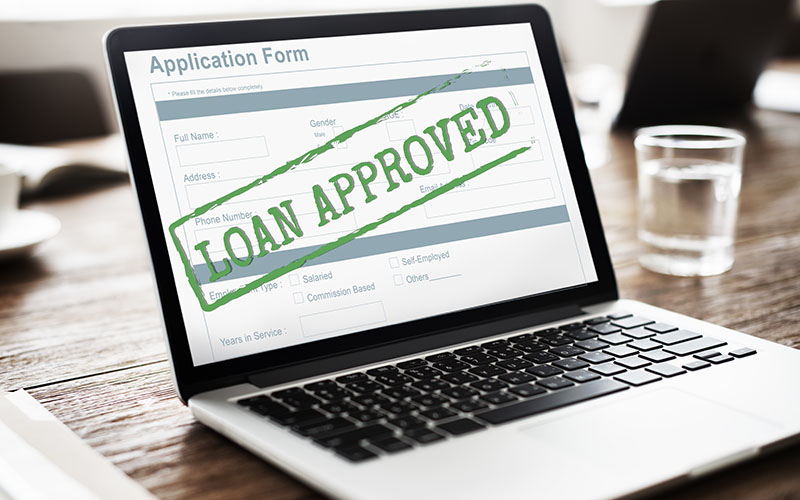Buying a car can be exciting, but navigating the financing process to get approved for a car loan can be overwhelming—especially if you’re not sure where to start. Whether you’re a first-time buyer or someone looking to upgrade their vehicle, understanding how car loans work and what lenders look for can make a significant difference.
This article will walk you through everything you need to know about getting approved for a car loan. We’ll cover essential steps, expert strategies, red flags to avoid, and how to improve your chances—even if your credit isn’t perfect.
Key Takeaways
- Know your credit score and take steps to improve it.
- Get pre-approved before shopping.
- Understand your budget using the 20/4/10 rule.
- Shop multiple lenders, not just the dealership.
- Have all your documents ready before applying.
- Avoid common mistakes like overborrowing or skipping the pre-approval step.
- Don’t rush—timing your application and choosing the right lender makes a big difference.
What is a Car Loan and How Does It Work?

A car loan is a type of financing offered by banks, credit unions, or auto dealers that allows you to purchase a vehicle by borrowing money and paying it back in monthly installments over time. The amount you borrow is known as the principal, and you pay interest on it throughout the term of the loan.
A car loan is a type of loan that allows you to borrow money to purchase a vehicle, which you then repay over a set period, typically with interest. The car itself is often used as collateral for the loan, meaning the lender can repossess it if you fail to make payments.
Types of Car Loans
1. New Car Loans
Used for purchasing brand-new vehicles. Typically have lower interest rates.
2. Used Car Loans
For pre-owned cars. Interest rates may be higher depending on the car’s age and condition.
3. Refinancing Auto Loans
If you already have a car loan, refinancing allows you to replace it with a new one—usually to lower your rate or payment.
4. Lease Buyouts
Allows you to purchase a leased car at the end of your lease period.
Why Do Car Loan Approvals Get Rejected?
Even if you think you’re financially stable, there are many reasons a car loan application might be denied:
- Low Credit Score
- High Debt-to-Income Ratio
- Insufficient Income
- Short Employment History
- Errors in Application
- Recent Bankruptcies or Foreclosures
Knowing these reasons upfront can help you fix issues before applying.
How to Improve Your Chances of Getting Approved
1. Check and Improve Your Credit Score
Your credit score is a major factor in loan approval. Lenders use it to judge your ability to repay debt.
- Good Score: 670+
- Excellent Score: 740+
Tips to Boost Your Credit Score
- Pay bills on time
- Reduce outstanding debt
- Avoid new credit inquiries
- Dispute errors on your credit report
2. Save for a Down Payment
A sizable down payment reduces the loan amount and makes lenders more comfortable approving you.
3. Get Pre-Approved
Pre-approval gives you leverage during negotiations and shows you’re serious.
4. Limit Hard Credit Inquiries
Too many loan applications can hurt your credit. Try to apply to multiple lenders within a 14-day window to minimize the impact.
Step-by-Step Guide to Getting a Car Loan
Step 1: Know Your Credit Score
Obtain a free credit report from Experian, Equifax, or TransUnion.
Step 2: Determine Your Budget
Use the 20/4/10 rule:
- 20% down
- 4-year loan term
- 10% of monthly income on car expenses
Step 3: Get Pre-Approved
Apply online with credit unions, banks, and lenders to get your rate and loan terms.
Step 4: Choose the Right Car
Look for cars that are within your pre-approved loan limit.
Step 5: Finalize the Loan
Submit required documents and finalize your loan with your chosen lender.
What Role Does Credit Score Play

Score Tiers
- Super Prime (781–850) – Best rates
- Prime (661–780) – Good rates
- Non-Prime (601–660) – Higher rates
- Subprime (501–600) – Risky; may require a co-signer
- Deep Subprime (<500) – Rarely approved without high down payments
What Are the Best Lenders for Car Loans?
1. Credit Unions
Known for lower rates and flexible requirements.
2. Banks
Reliable but may have stricter approval criteria.
3. Online Lenders
Fast and competitive, but do your research.
4. Dealership Financing
Convenient, but may have higher interest rates.
Should You Get Pre-Approved?
Yes! Pre-approval can:
- Help you stick to your budget
- Improve bargaining power
- Lock in your interest rate
- Show sellers you’re serious
How Much Car Can You Afford?
Use the 20/4/10 rule or the 50/30/20 budgeting rule.
Online Affordability Tools
Use calculators to assess:
- Loan term
- Interest rate
- Total payment
What Documents Do You Need?

- Valid ID
- Proof of income (pay stubs, W-2s)
- Proof of residence (utility bill, lease)
- Proof of insurance
- Credit report (optional if you’re bringing your own)
What is the Best Time to Apply?
Best Months
- October to December (dealerships try to meet year-end quotas)
Best Days
- Monday–Tuesday
- End of the Month
- Holiday Weekends (Memorial Day, Labor Day)
Also Read : How Accurate Is A Loan Calculator For Planning Your Payments?
Conclusion
Getting approved for a car loan is not just about having good credit. It’s about preparation, smart shopping, and knowing what lenders want. Whether you’re buying new or used, financing your dream car is within reach if you take the right steps.
FAQs
1. Can I get a car loan with bad credit?
Yes, but interest rates will be higher, and you may need a co-signer or large down payment.
2. How long does loan approval take?
Same-day for many lenders, up to 1–2 business days for banks or credit unions.
3. Do I need a co-signer?
If your credit score or income is low, a co-signer can improve your approval chances.
4. What’s a good loan term?
Shorter terms (36–48 months) save on interest, but longer terms (60–72+ months) lower monthly payments.
5. Will applying hurt my credit?
Multiple hard inquiries within a short time (14 days) count as one on your credit score.
6. What happens if I get denied?
Ask the lender why and work on improving those areas. Reapply after 3–6 months.
7. Should I finance through the dealership?
Only if they offer competitive rates. Always compare with banks and credit unions.



